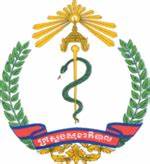Issue Description
Self-medication with the use of over-the-counter medicines is the most common form of medical care across the world. Over-the-Counter (OTC) medicines allow consumers to benefit from a wide range of convenient treatment options at a reduced cost by avoiding consultations with healthcare professionals. As a result, there is a growing trend, particularly in developed markets to increase patient access to new treatments by making more pharmaceutical products available over-the-counter, rather than requiring patients obtain a prescription.
This reclassification of prescription medicines to OTC is not a new occurrence, with many now common treatments like paracetamol, ibuprofen and antihistamines all once requiring a prescription. Reclassification occurs when healthcare authorities and pharmaceutical companies are confident that the potential risk of wider access is lower than the benefit to patients and after there has been an established track record of safe diagnosis, treatment and management without the need for a doctor’s supervision.
In Cambodia, uncertainty surrounds the processes and regulations involved to transfer a prescription medicine to an OTC medicine. Therefore, the wider healthcare industry and Cambodian citizens will stand to benefit from a formalised process with clear and consistent criteria for healthcare companies to follow to transfer prescription products to OTC. On this aspect, ASEAN’s Common Technical Requirements (ACTR) is a guiding document for policy makers to ensure that the efficacy, safety, and quality of the medicine is maintained while also increasing access to it. The guidelines outline a comprehensive evaluation process that considers the potential impact on public health, healthcare professionals, and patients, as well as the regulatory requirements and processes for the transfer.
Impact on business
In the absence of a defined procedure for healthcare companies to safely convert prescription medicines to OTC, patients are forced to spend more time and money on consultations with healthcare professionals, rather than utilise cheaper OTC treatments for certain conditions at their own convenience. Similarly, if patients are unable to treat the symptoms of their minor ailments, this will rapidly increase the strain on Cambodia’s healthcare system and takes away essential medical services and expertise from patients with more serious conditions that are inappropriate for self-care.
If the range of OTC treatments does not evolve with the Kingdom’s changing healthcare needs, the illicit use of prescription medicines is likely to increase, as patients have little choice but to continue using these products when they become ill. The risks associated with prescription medicines significantly increases when used illicitly, as patients are often unaware of the potential contraindications or harmful side effects their use can carry. In comparison, patients perceive OTC medicines to be less risky while just as effective for certain conditions, due to the safer dosages and more comprehensive labelling and packaging, which provides detailed usage instructions on what symptoms can be treated and the potential side effects.
Recommendation
- Align the eligibility criteria and processes involved to reclassify a prescription pharmaceutical product as an Over-the-Counter product in Cambodia with ASEAN practices.
EuroCham respectfully recommends that the Ministry of Health clearly define the criteria and processes for healthcare companies to follow to reclassify a prescription pharmaceutical product for use as an OTC product in Cambodia. Documents such as the ACTR could be taken as inspiration to define such procedures in Cambodia. By doing so, the Ministry will enable Cambodian citizens to safely take greater individual responsibility in the management of their own healthcare, bringing the economic and public health benefits of increased self-treatment. However, it is important that there are rigorous controls in place to ensure that only treatments that are appropriate for self-medication are reclassified.
Recognising that the criteria for reclassification will be dependent on the Ministry of Health’s requirements, we recommend that this process be evidence-based and rely on impartial data provided by the healthcare sector to demonstrate their products’ suitability, for which the Ministry of Health will need to continuously review on the basis of safety and efficacy.
Royal government of Cambodia
Initiative from Eurocham: The issue has been raised by the Healthcare Committee within The White Book edition 2024 in the Recommendation No. 42.

National Counterparts

Ministry of Health

